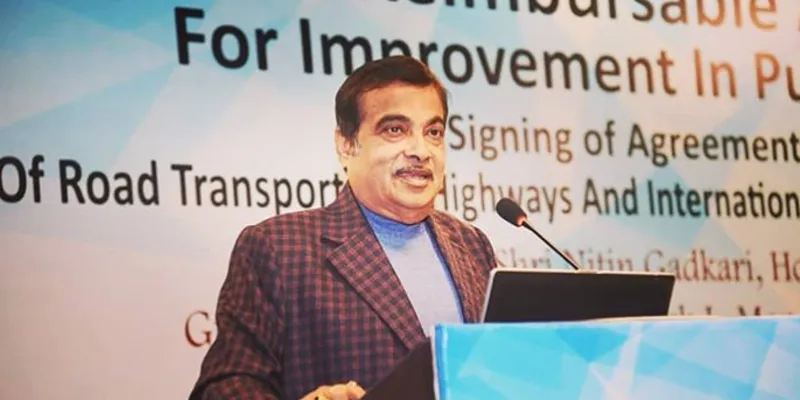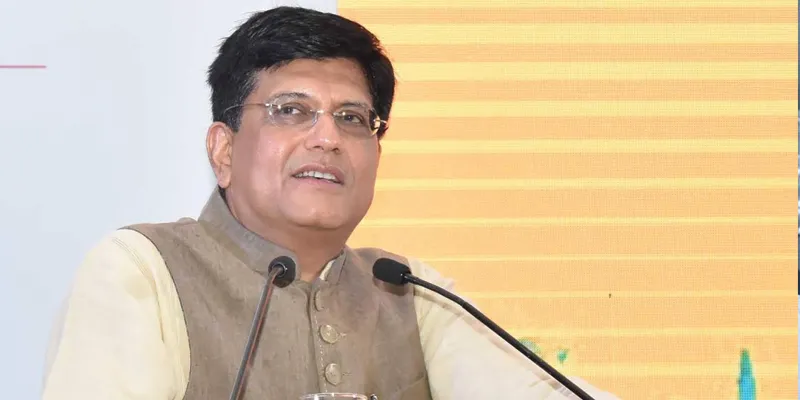5 key govt decision makers impacting the Indian MSME sector
The MSME Ministry cannot work in silos and requires other departments to work jointly to uplift and empower Indian MSMEs. Here are five key ministries and their ministers who are critical to ensuring a bright future for MSMEs

MSMEs form the backbone of the Indian economy and are critical to India’s vision of becoming a $5 trillion economy by 2025. The MSME industry contributes 29 percent of the country’s GDP, and also holds the key to solving India’s job crisis. A CII survey reveals that the MSME sector created the most number of jobs in the country in the last four years.
To boost the capabilities of MSMEs and small businesses in 2020, the MSME Ministry implements various schemes and programmes. This makes Union Minister for MSME Nitin Gadkari and the Ministry crucial stakeholders in creating a bright future for MSMEs in 2020.
But the ministry cannot work alone. Other Government departments such as the Ministry of Commerce and Industry, Ministry of Textiles, and others have an important role in coming together to collaborate and implement schemes that will uplift and empower small businesses, young entrepreneurs, artisans, weavers, and more.
Here are five key government bodies and decision-makers that will impact the future of MSMEs in India:
The Ministry of MSME and Nitin Gadkari

Union Minister for MSME, Nitin Gadakri
Just a few days after taking office, Gadkari said he would work with full strength to increase job opportunities in the MSME sector. His vision is to raise the contribution of MSME sector to the country's GDP to 50 percent from the present 29 percent, and ensure that it gives employment to at least 15 crore people against the 11.1 crore at present.
In 2020, Gadkari and the MSME Ministry aims to increase the number of MSMEs in India on a sustainable basis through various schemes and programmes. To do this, Gadkari said the ministry is providing better credit facility, technology upgradation, and skilling to boost the entire MSME ecosystem in India.
Gadkari has also been talking about starting an ecommerce portal for MSMEs and the Khadi industry. It is inspired by Alibaba from China and Amazon from the US. The government portal, which Gadkari has been talking to Commerce Minister Piyush Goyal about, is meant for selling products manufactured by small industries.
The Ministry of Commerce and Industry and Piyush Goyal

Commerce Minister Piyush Goyal
Union Minister of Commerce and Industry Piyush Goyal believes the future of India lies in the MSME sector and has urged MSME industries to demand government support in development of clusters near ports, availability of land in bulk, common effluent treatment plants, and common testing facilities.
Besides talking to Gadkari about the MSME ecommerce portal, Goyal has promoted a new Export Credit Insurance Scheme (ECIS) by Export Credit Guarantee Corporation of India (ECGC), a company controlled by the Ministry of Commerce. Named Nirvik, the new insurance scheme is expected to make Indian exports competitive and benefit MSME exporters with tax reimbursements, reduced insurance costs, and ease of doing business.
Going forward, Goyal has called for more participation by MSMEs of developing nations in domestic and global trade. The minister has also directed officials to make it simpler and less time-consuming for MSMEs to sell on public procurement portal Government e-Marketplace (GeM).
The Commerce Minister also exhorted state-run banks to step up lending to MSMEs and also assured these lenders of all kinds of support.
The Ministry of Textiles and Smriti Irani

Textiles Minister Smriti Irani
To address skill gaps and to supplement efforts initiated through the Special Package for Garments and Made-ups, the Ministry of Textiles approved the Scheme for Capacity Building in Textile Sector (SCBTS) in three years from 2017-18 to 2019-20.
Smriti Irani and the ministry focussed on apparel and garmenting, knitting, metal handicraft, textile and handloom, handicraft and carpet, among others. The Rs 1,300 crore initiative known as "Samarth” signifies the broad objective of skilling youth for gainful and sustainable employment in the textile sector.
Textiles minister Smriti Irani announced in August 2019 that out of 18 selected states, 16 state governments signed MoUs with the Textile Ministry to implement Samarth. “It has been the endeavour of the Prime Minister that for a new India, we ensure that each and every citizen who seeks resources for sustenance is skilled, and it is in this endeavour in the sector of textiles that Samarth took shape,” Irani said.
Government information indicates the scheme's primary objective is to provide demand-driven, placement-oriented National Skills Qualifications Framework (NSQF)-compliant skilling programmes to incentivise and supplement the efforts of the industry in creating jobs in the organised textile and related sectors.
Ministry of Skill Development and Entrepreneurship and Mahendra Nath Pandey

Skill Development and Entrepreneurship Minister Mahendra Nath Pandey
Union Minister Mahendra Nath Pandey has maintained India needs more than 70 lakh skilled manpower “due to unleashing of economy”, adding that “more than 62 percent of India’s population is young and it is the Prime Minister’s vision to make India one of the largest skilled economies in the world.”
Pandey is at the forefront of the National Skill Development Mission (Skill India Mission), launched on July 15, 2015 under the guidance of Prime Minister Narendra Modi, which Pandey said has been steadily making progress. “Nearly one crore youth are being given skill training every year under several programmes of the government through the Skill India Mission,” he said.
Pandey also announced that 36 Indian states and union territories have submitted their consent for participation in the ministry’s World Bank loan-assisted Skills Acquisition and Knowledge Awareness for Livelihood Promotion (SANKALP) programme.
Pandey announced that first year grants have been released by the ministry to nine states. They are Andhra Pradesh, Assam, Bihar, Gujarat, Jammu & Kashmir, Maharashtra, Manipur, Punjab, and Uttar Pradesh.
Ministry of Finance and Nirmala Sitharaman

Finance Minister Nirmala Sitharaman
Taking over the portfolio from Arun Jaitley, Sitharaman presented the full Budget for 2019-20 on July 5, 2019, in the Lok Sabha. With a focus on small businesses and kirana stores, she announced a retail pension benefit scheme for three crore traders and shopkeepers with annual turnover less than Rs 1.5 crore.
She then announced Rs 350 crore has been allocated for two percent interest subvention for GST-registered MSMEs on fresh or incremental loans, and also proposed the creation of a payment platform for MSMEs to enable filing of bills and payment on the platform.
Besides the Budget announcements, the Minister's focus on empowering small businesses continued through the next few months. In a bid to boost lending, Sitharaman on September 20 asked public sector banks to hold 'loan melas' in 400 districts to lend to desirable shadow banks and retail borrowers.



![[2020 Outlook] The top trends that will shape the future of Indian small businesses](https://images.yourstory.com/cs/21/98e25df018b511e988ceff9061f4e5e7/finalIndiansmallbusinessestoptrends011575994355978png?fm=png&auto=format&h=100&w=100&crop=entropy&fit=crop)





